Carl Johnson
-

Vanderbilt scientists develop an algae time machine, advancing biomedicine
A Vanderbilt scientific team has succeeded in adjusting the daily biological clock of cyanobacteria, making the blue-green algae a more prolific producer of renewable fuels, chemicals, and pharmaceuticals, like insulin. Read MoreMay 14, 2024
-
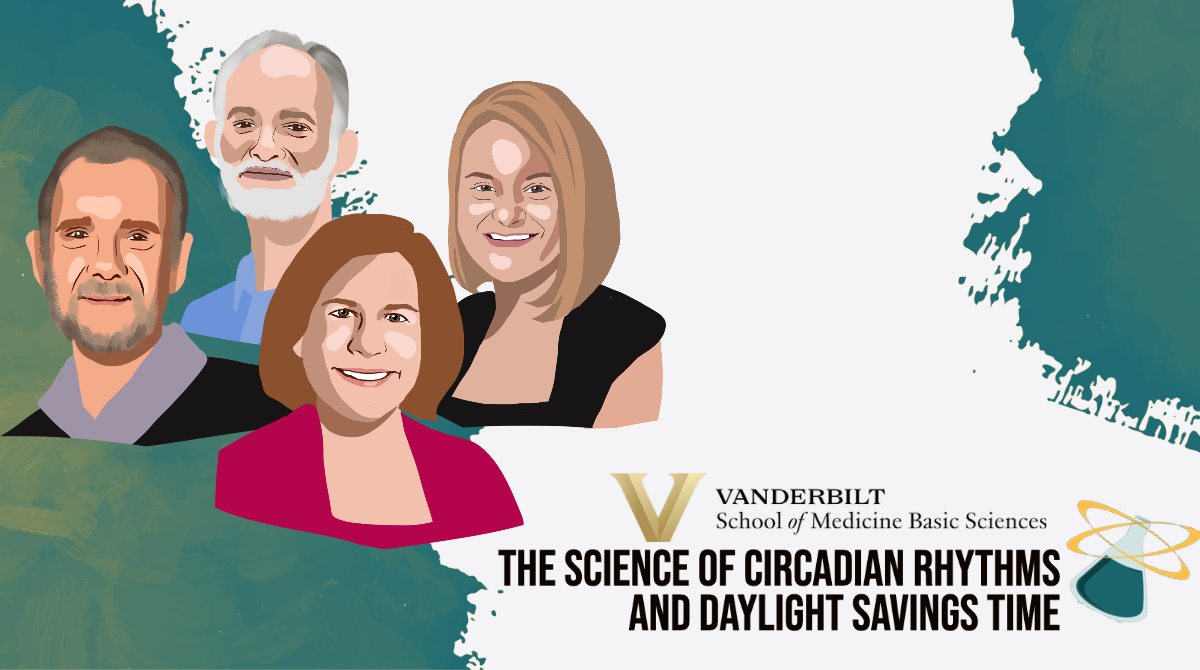
Watch: Lab-to-Table Conversation: ‘The Science of Circadian Rhythms and Daylight Saving Time’
How does daylight saving time impact our health? Join Lisa Monteggia, Barlow Family Director of the Vanderbilt Brain Institute and professor of pharmacology, and panelists as they explore how time changes affect our circadian rhythms. Read MoreOct 19, 2022
-

Research Snapshot: Producing green fuel, and more rapid determination of the biological consequences of gene editing
Vanderbilt researchers examine how to rapidly characterize the biological impact of genetic editing on bacteria for energy production, drug discovery and more. Est. reading time: 2.5 mins. Read MoreDec 13, 2021
-

Research Snapshot: Eat breakfast and stop late-night snacking
Eating a larger, protein-filled breakfast is one of the best ways to maintain a healthy weight. A smaller but still significant change would be to avoid late-night snacking. Est. reading time: 3.5 mins. Read MoreOct 28, 2021
-

Research Snapshot: COVID-19 virus test sensitivity varies with body’s circadian rhythm
Carl Johnson, Cornelius Vanderbilt Professor of Biological Sciences and expert in biological clocks, identifies temporal component to COVID-19 viral shedding. Est. reading time: 2.5 mins. Read MoreOct 26, 2021
-

Six new endowed chairs from Medicine, A&S, Owen and Law School honored
Vanderbilt’s six newest endowed chairs were honored by colleagues, university leaders, family members and donors at a ceremony on April 30 in the Student Life Center. Read MoreMay 3, 2019
-

High-speed atomic force microscopy reveals clock protein interactions
Prof. Carl Johnson and his team discovered on-and-off interactions between KaiA and KaiC take only seconds but combine to create a 24-hour oscillation of phosphorylation in a test tube. Read MoreAug 20, 2018
-

Six projects garner Microbiome Venture Fund awards
Six faculty-led teams have received 2018 Microbiome Venture Fund awards to pursue projects related to the broad category of microbiomes—the totality of microbes in or on an environment. Read MoreAug 14, 2018
-
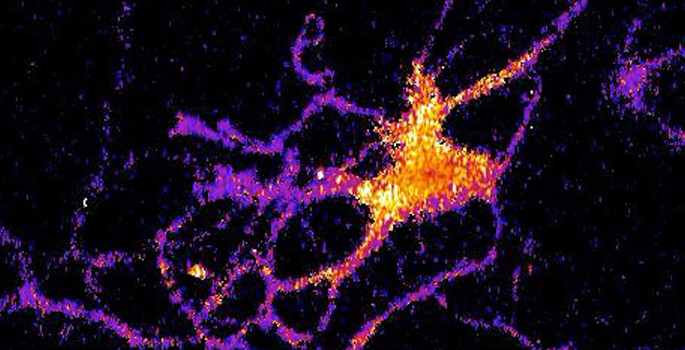
Bioluminescent sensor causes brain cells to glow in the dark
A team of Vanderbilt scientists have genetically modified luciferase, the enzyme that produces bioluminescence, so that it acts as an optical sensor that records activity in brain cells. Read MoreOct 27, 2016
-

The most popular research stories of 2015
With discoveries ranging from the origins of consciousness to the end of the universe, 2015 was a year of incredibly diverse research at Vanderbilt University. Read MoreDec 28, 2015
-
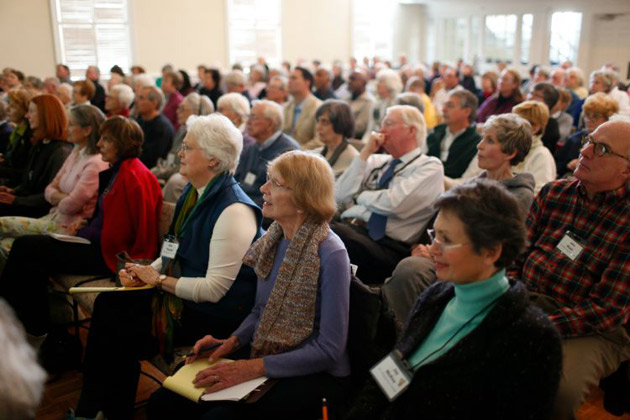
Enroll now in Vanderbilt Osher Lifelong Learning fall classes
The Osher Lifelong Learning classes at Vanderbilt this fall draw from professors' research in areas that include earth science, Hebrew Bible, music history, urban planning and more. Read MoreSep 1, 2015
-
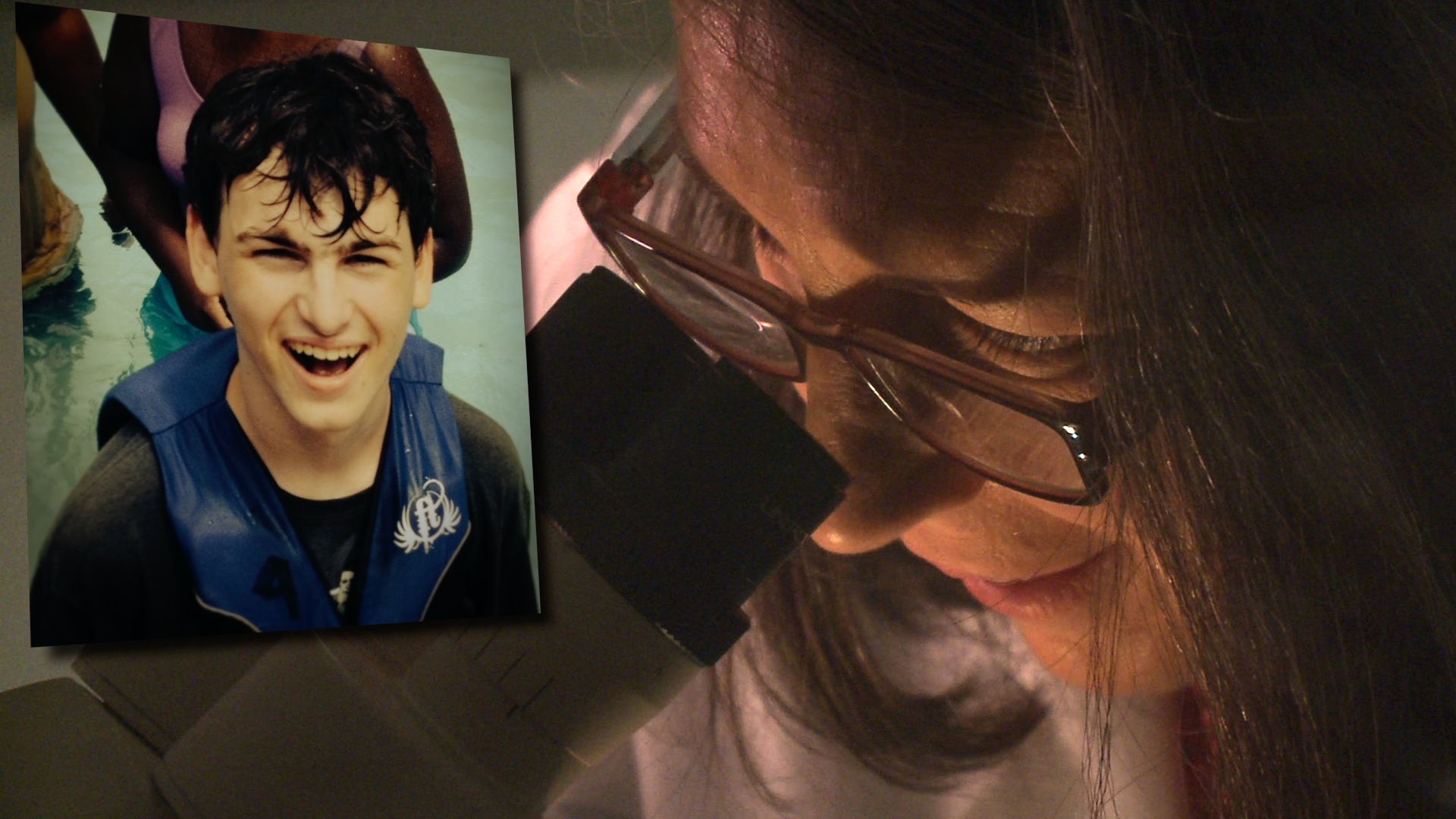
VUCast Extra: One mom’s race for a cure for son’s rare disorder
It’s a story of love and determination and a debilitating lifelong disorder. A son’s rare genetic disease has led his mom to become a scientist at Vanderbilt University. Watch this VUCast Extra and a mom’s race against time. Read MoreApr 7, 2015
-

Circadian clock – Angelman syndrome link established
Vanderbilt biologists have found a direct link between the biological clock and Angelman syndrome, a neurogenetic disorder that occurs in more than one in every 15,000 live births. The link may provide a valuable way to judge the effectiveness of the first experimental drugs under development for treating the syndrome. Read MoreFeb 5, 2015
-

Two from Vanderbilt will partner with Brazilian researchers
Last spring, Vanderbilt entered into a partnership to foster collaborations between its faculty and researchers affiliated with universities in the Brazilian state of São Paulo. In the first year of this partnership, two proposals have been selected for funding. Read MoreNov 10, 2014
-

Top 10 research stories of 2013
This year’s most popular research stories plumbed mysteries of the brain, examined complex social phenomena, shed light on dark matter, uncovered a surprising link between our three greatest health threats and more. Read MoreDec 23, 2013
-
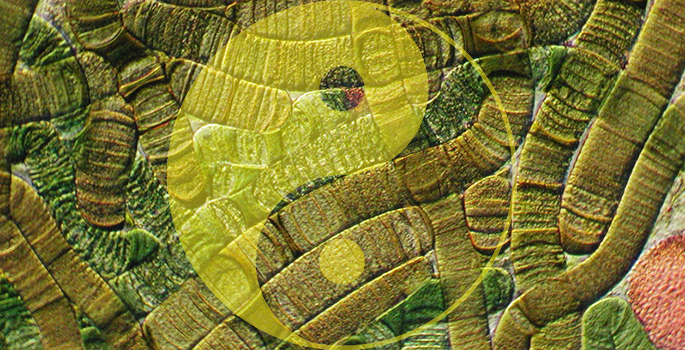
Tricking algae’s biological clock boosts production of drugs, biofuels
Tricking algae’s biological clock to remain in its daytime setting can dramatically boost the amount of commercially valuable compounds that these simple marine plants can produce when they are grown in constant light. Read MoreNov 7, 2013
-

‘Snooze button’ on biological clocks improves cell adaptability
(iStock) The circadian clocks that control and influence dozens of basic biological processes have an unexpected “snooze button” that helps cells adapt to changes in their environment. A study by Vanderbilt University researchers published online Feb. 17 by the journal Nature provides compelling new evidence that at least some species… Read MoreFeb 17, 2013
-

Faculty honored at 2012 Fall Assembly
Jeffrey Balser and Richard McCarty surprised Chancellor Nicholas S. Zeppos with his 25-year recognition award. (John Russell/Vanderbilt University) To see a slide show of photos, visit Vanderbilt’s Flickr page. Earl Sutherland Prize for Achievement in Research was presented to Peter Buerhaus,… Read MoreAug 23, 2012
-

June grants announced by Division of Sponsored Research
The Division of Sponsored Research received notification in June that the following grants in excess of $25,000 had been awarded. Read MoreJul 28, 2011
-
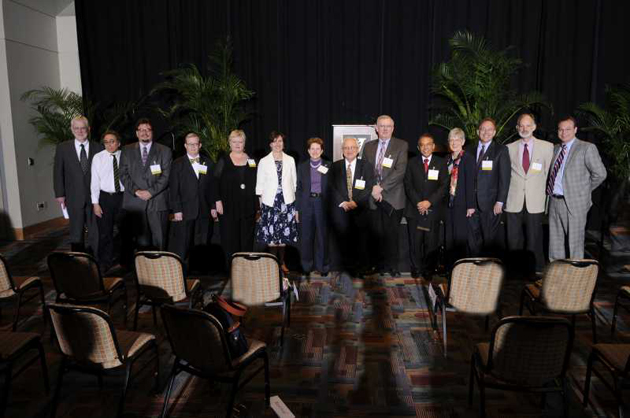
New endowed chairholders celebrated
Thirteen new endowed chairholders were honored May 17 in the Student Life Center (Mary Donaldson/Vanderbilt) Thirteen faculty members named this year to endowed chairs in the School of Medicine and College of Arts and Science were honored for outstanding academic achievements. The May… Read MoreMay 18, 2011